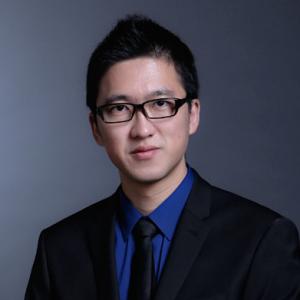Research Summary
Understanding complex biological systems and developing novel therapeutic approaches requires explorations at the interface of chemistry and biology. The focus of our research is the development of various chemical tools that allow us to precisely probe and manipulate biological systems. We are interested in (1) adding new building blocks with novel chemical, biological, and physical properties into different biological systems; (2) enhancing the performance of chemical biological tools for a variety of applications; (3) using these tools to better understand and ultimately control various biological processes; and (4) exploring the therapeutic utilities of these tools in the context of cancer, autoimmune, and metabolic diseases. My program has a strong translational focus, seeking to initiate new clinical opportunities, and contribute to advances in chemical biology, glycobiology and cancer immunology.
Biography
Han Xiao serves as the Director of the SynthX Center and holds the position of Associate Professor within the Department of Chemistry, Biosciences, and Bioengineering at Rice University. Han obtained his undergraduate degree from the University of Science and Technology of China (USTC) where he graduated with a B.S. in chemistry and an honors degree in physical science. After graduating from USTC in 2010, Han joined the Ph.D. program at the Scripps Research Institute (TSRI). His thesis work with Prof. Peter G. Schultz focused on expanding the technique of genetically incorporating unnatural amino acids in both prokaryotic and eukaryotic organisms and applying this technique for better cancer therapeutics. In 2015, Han joined the laboratory of Prof. Carolyn R. Bertozzi as a Good Ventures Postdoctoral Fellow of the Life Science Research Foundation at Stanford University. In his postdoctoral work, he was engaged in the development of novel cancer immune therapy targeting the cell-surface glycans axis of immune modulation. In July 2017, Han started his independent research at Rice University. The focus of his research is the development of various chemical biological tools allowing us to understand complex biological systems as well as develop novel therapeutic strategies. His awards include Level 2 Breast Cancer Research Program Breakthrough Award (DoD), Maximizing Investigators’ Research Award for Early Stage Investigators (NIH), Norman Hackerman - Welch Young Investigator Award, and CPRIT Faculty Recruitment Award.
Research News
- C&EN Global Enterprise: Switcheroo yields photoactivatable dyes
- Rice News: Programmed bacteria have something extra
- The Scientist: Homing Technology Delivers Therapy to Cancerous Bone
- PNAS commentary: Unraveling the impact of a glyco-immune checkpoint in bone metastasis

